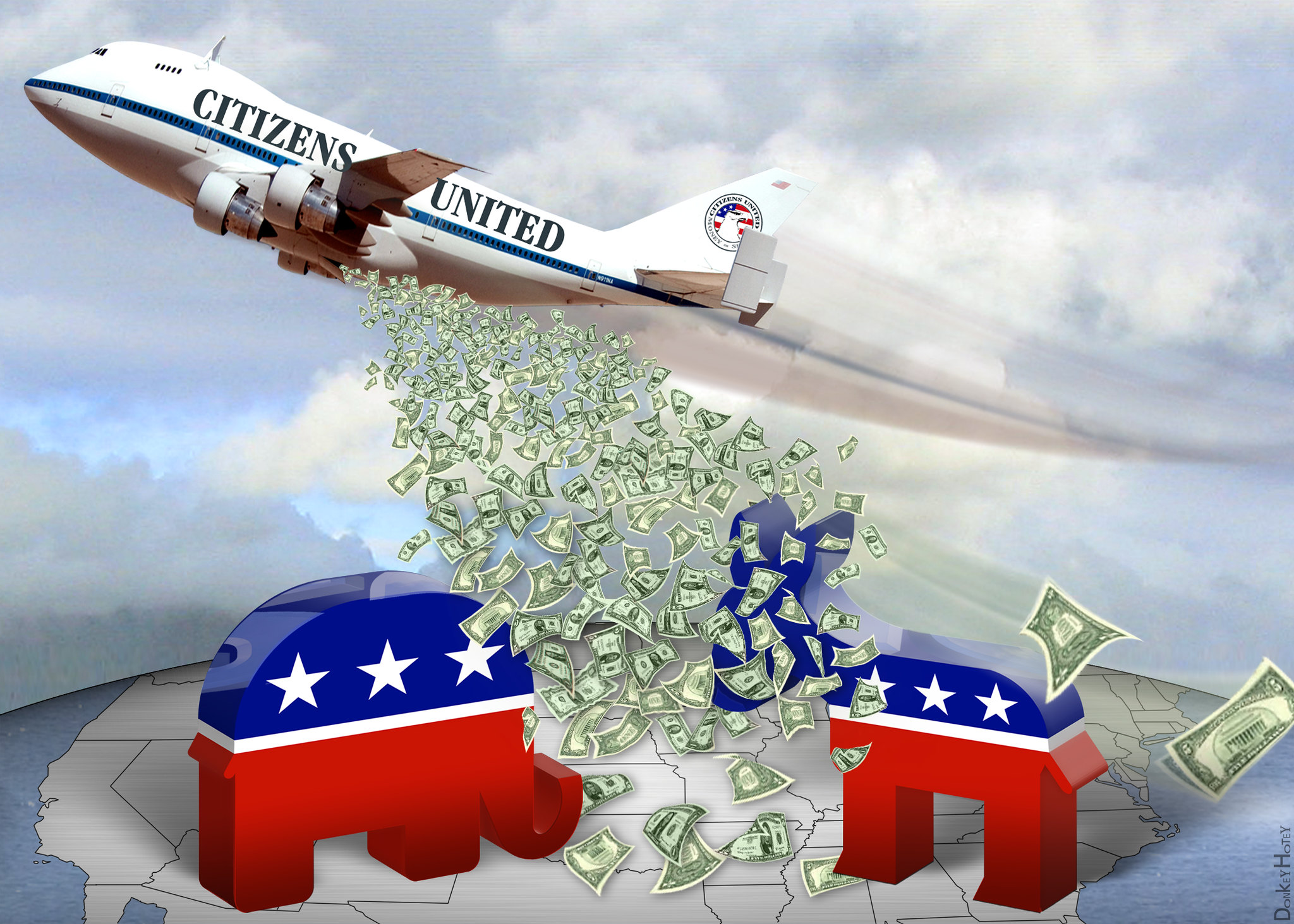Citizens United v. FEC Lawsuit of 2010

The Citizens United v. FEC decision on January 21, 2010 had profound and far-reaching impacts on the political and electoral landscape in the United States. By allowing corporations, unions, and other organizations to spend unlimited amounts on independent political expenditures, the ruling reshaped campaign finance and elections in several ways and deepened public cynicism about the political process and reinforced the reality that the government was dominated by powerful financial interests.
The four opposing Justices rejected the decision, with Justice Stevens issuing a flaming dissent, saying “a rejection of the common sense of the American people, who have recognized a need to prevent corporations from undermining self-government.” This quote reflects Justice Stevens’s deep concern about the ruling’s implications for democracy and its potential to give disproportionate influence to corporate entities in the political process. The Justices understood this decision undermined the integrity of elections and the principles of representative self-government.
Allowing unlimited corporate and union spending in elections leads to disproportionate influence by wealthy entities, undermining the democratic principle of “one person, one vote.” Justice Stevens wrote, “A democracy cannot function effectively when its constituent members believe laws are being bought and sold.”
The dissent strongly rejected the majority’s assertion that corporations have the same rights as individuals. Stevens emphasized that corporations are artificial entities, legal fictions, created by the government and do not have the same characteristics, interests, or responsibilities as individuals. The dissent warned that unlimited corporate and union spending would lead to actual corruption and the appearance of corruption in the political process. Stevens highlighted the long-standing recognition in campaign finance law that large expenditures, even if independent, can create undue influence on candidates and elected officials.
The opposing Justices criticized the overturning precedent unnecessarily. The majority struck down key parts of the Bipartisan Campaign Reform Act (BCRA) and reversed decisions in Austin v. Michigan Chamber of Commerce (1990) and portions of McConnell v. FEC (2003). These earlier rulings had upheld restrictions on corporate spending. The majority showed insufficient respect for the principle of stare decisis (respect for precedent), the importance of stability in the law, particularly in a case involving complex and highly debated areas like campaign finance.
Since the majority opinion, there has been a dramatic increase in independent expenditures by corporations, unions, and especially Super PACs. Political spending by outside groups grew from $338 million in the 2008 election cycle to over $4.5 billion in the 2020 cycle. Billionaires and wealthy individuals now wield significant influence through massive contributions to Super PACs. For example, in the 2020 election, the top 100 donors accounted for nearly 90% of all Super PAC contributions.
The questionable majority decision led to the creation of powerful political actors called Super PACs, which can raise and spend unlimited amounts. They are not supposed to coordinate with candidates, but they do. Corporations prefer to contribute to politically active nonprofits and trade associations, to mask their involvement and influence.
Following the decision the creation of tax-free “social welfare organizations,” exploded. These organizations are used as a dark money vehicle to engage in political spending without disclosing their donors. Between 2010 and 2022, dark money groups spent over $1.6 billion on federal elections.
In today’s system, candidates are forced to rely on fundraising from large donors and Super PACs rather than address social issues and support their communities. Super PACs and 501(c)(4) untraceable dark money groups frequently fund attack ads on candidates that will not do their bidding and shielding the corporate and billionaire backers from any backlash.
Americans view the increased role of money in politics as a form of legalized corruption. Public confidence in the integrity of elections and the fairness of government decisions is gone. Political party leadership has instituted a system of purchasing committee seats. The system of big money has fueled hyper-partisan campaign messaging and candidates, contributing to greater polarization in Congress and state legislatures.
Americans realize the system is broken and want a Constitutional Amendment stating “Corporations are not People and Money is not Speech”.
